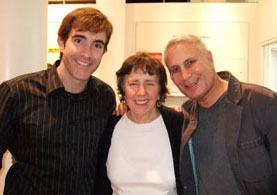 1938 was the beginning of a very rough patch for Europe but–as it turns out–it was a great year for the future of American music. Several of America’s most influential living composers were born in the early dawn of World War II, including John Corigliano, Joan Tower, Frederic Rzewski, Charles Wuorinen, William Bolcom, and John Harbison. The serendipity of that bountiful year has not gone unnoticed as a couple of new recordings and numerous 70th birthday bashes will attest.
1938 was the beginning of a very rough patch for Europe but–as it turns out–it was a great year for the future of American music. Several of America’s most influential living composers were born in the early dawn of World War II, including John Corigliano, Joan Tower, Frederic Rzewski, Charles Wuorinen, William Bolcom, and John Harbison. The serendipity of that bountiful year has not gone unnoticed as a couple of new recordings and numerous 70th birthday bashes will attest.
The most satisfying of these celebrations of the Class of ’38 to cross our path is pianist Blair McMillen’s revelatory Centaur release multiplicities: ’38: Music by Composers born in 1938. Multiplicities is exactly the right word in this case, because the composers represented here may have been born in the same year but, stylistically, they come from different planets. The cool and polite elegance of Corigliano and the cosmopolitan eclecticism of Bolson are as far removed from the populist Americana of Tower and Rzewski as they are from the gnarly serialism of Wuorinen.
And, of course, there is John Harbison, the pick of the 1938 litter IMHO (as the kids like to say), who has spectacularly succeeded at his own stated aesthetic intent: “…to make each piece different from the others, to find clear, fresh large designs, to reinvent tradition.”
Blair McMillen is one of three or four great young pianists who specialize in new music and if you throw in the caveat “has an uncanny feeling for the composer’s intent,” he may well stand alone. The quality of his playing on multiplicities: ’38 is consistently extraordinary but just as remarkable is the way he perfectly captures the individual “voice” of each of these highly diverse composers. We are accustomed to hearing most of them in larger settings but here, stripped down to a single piano (or in the case Corigliano’s Chiraoscuro two pianos tuned ¼ tone apart), the dazzling range of the Class of ‘38’s compositional talents becomes manifest. For his uncanny ability to contrast and compare music of enormous diversity, we owe McMillen a debt.
And don’t forget Monday night at Merkin Hall when the Da Capo Chamber Players, for whom McMillen is pianist, presents a 70th birthday portrait of Joan Tower. Tower was an original founder of Da Capo and its pianist for 15 years.

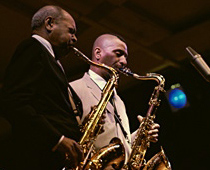
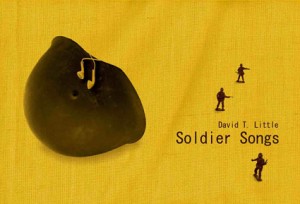
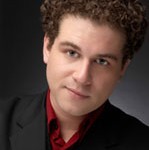
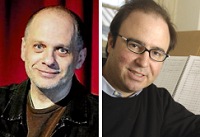 Big Ups to David Lang and Christopher Theofanidis who have just been appointed to the faculty of the Yale School of Music. They will teach graduate students in the school’s composition program as well as teach courses and participate in the performances of their works. Both earned masters and DMA degrees from the Yale School of Music before embarking on their illustrious careers.
Big Ups to David Lang and Christopher Theofanidis who have just been appointed to the faculty of the Yale School of Music. They will teach graduate students in the school’s composition program as well as teach courses and participate in the performances of their works. Both earned masters and DMA degrees from the Yale School of Music before embarking on their illustrious careers.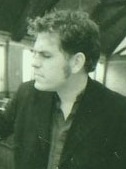 It’s been three years since the human and moral disaster that was Hurricane Katrina overran New Orleans and uncovered an ugly blight on America’s soul. To help make sure that nobody forgets, New Amsterdam Records will release a digital version of Ted Hearne’s powerful work Katrina Ballads on August 29.
It’s been three years since the human and moral disaster that was Hurricane Katrina overran New Orleans and uncovered an ugly blight on America’s soul. To help make sure that nobody forgets, New Amsterdam Records will release a digital version of Ted Hearne’s powerful work Katrina Ballads on August 29. Here’s a big loss to the New York new music community.
Here’s a big loss to the New York new music community.  n this age of Dobbsian-fueled immigration hysteria, what could be more timely than an opera about a beautiful Mexican drug smuggler who kills her lover after he betrays her and, in the process, becomes a folk heroine.
n this age of Dobbsian-fueled immigration hysteria, what could be more timely than an opera about a beautiful Mexican drug smuggler who kills her lover after he betrays her and, in the process, becomes a folk heroine.